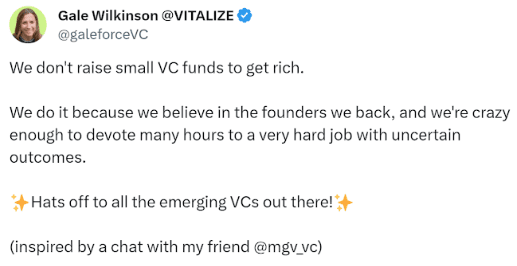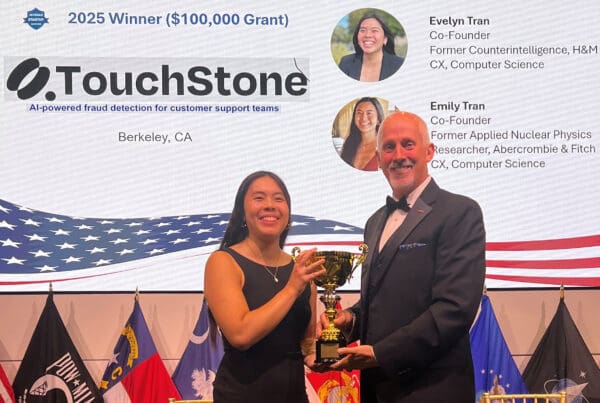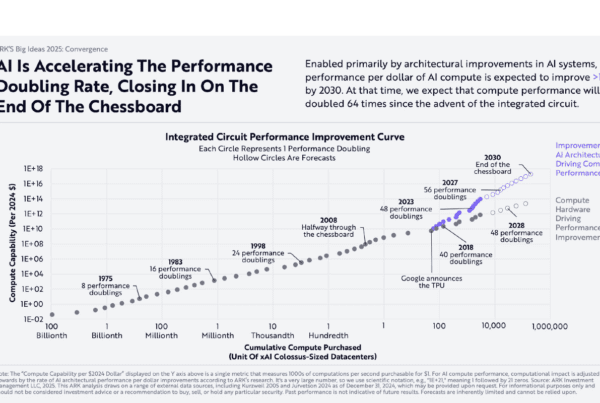Eight years ago this month in October 2015 we made our very first investment at TFX Capital: GoodUnited. While I didn’t fully understand the nuances of being a small, emerging fund manager against the totality of the venture capital industry at that time, I did appreciate the privilege and honor of backing founders in their early days. I started the firm to simply fill a gap—deliberate sources of capital and support for Veteran founders who often don’t bring up their military service or learnings when speaking with investors.
And since that time, I have personally had to follow a similar founder path in terms of doing everything possible to stay operational, maximize resources and stay proactive despite operating in an extremely lean environment. Reflecting this month on our journey as a small, emerging fund manager, here’s what I’ve learned that has helped TFX not only survive but thrive as a small firm dedicated to investing in early-stage companies founded by talented former military leaders:
- Purpose Matters. Founders who have connected their hearts (will) and minds (belief) into a singular pursuit are simply able to do more in the face of unwavering odds. The beauty of the US military is that it can create moments where individuals feel fully connected to the mission—to something bigger than themselves. They have purpose and it unlocks creativity, perseverance, and enthusiasm. We relish working with people driven by Purpose! A Founder’s WHY, their purpose, is a critical aspect to resilience. We’ve seen this on display during the COVID-19 pandemic and over the past 15 months of a near-non-functioning capital market. Founders need to be all in from the outset—it will be a long, arduous journey where most will fail; where their professional opportunity costs are high; and where the emotional strain of the 24/7/365 “Founder Life” is enormous. As a small fund manager I have had to rely heavily on my own purpose of supporting early-stage companies and staying positive every day. My WHY has been critical to getting this far even with a substantial professional and personal economic opportunity cost.
- Get in the Trenches. Generally, small fund managers are establishing their firms, sorting through operational practices, and making the best investment decisions possible with their very limited capital. Many smaller venture funds invest in the early stages of a company because of this limited capital base—but the risks are greater at this stage where we have the least amount of information to make such a decision. For us, this is the special part of what we do as early-stage investor: to support military veteran founders, their unique solutions focused on addressing critical business needs and timing the broader markets to ultimately succeed in an unapologetic leap of faith. Founders repeatedly report friction and challenges interacting with VC firms at the early stages—they want to see x revenue, y product, z evidence—so we when a firm like ours steps forward and gains conviction it is because we passionately believe and want to do whatever we can to help these founders succeed. We are there to get engaged with what my friend Joe Musselman calls the three C’s: capital, community, and customers. And we plan to support them relentlessly for the next ~5 years in both good times and bad. Eric Bahn at the Hustle Fund recently commented on this mindset:
- Many firms don’t want to do this work or just want to passively invest early as wager to see if it works. Our focus on aligning with founders, actively getting into the trenches with them, and limited capital to invest means we are quite selective, deploy fairly robust due diligence, and lean in from the outset. I like to think we’ve played a small part in helping many of our companies stay operational during the past 36 months of market chaos as well as through the dynamic challenges of each business’ journey from start-up to scale. Gale Wilkinson at Vitalize had a great post in 2021:
- “Thank you for your service, but….” Frankly, the civil-military divide in the US is alarmingly wide. Aside from being a small fund manager with a limited track record and an unknown brand, we have also had to educate most investors about the military. Far too many citizens don’t understand the military, its role, the training and leadership development opportunities within, and why it’s a rich talent pool for both corporate America and for startups. If we can convince investors to connect the Veteran backgrounds we invest in with the natural alignment that a military experience provides for start-up execution and operational success, then we can add them to the fight. Too often fund investors cannot grasp the nuances of the military, and don’t want to offend which can cloud traditional fundraising discussions, rather than losing sight of the military, service-driven experience that ties into start-up success. Ironically, the same gap we looked to fill by starting our firm in late 2015 is the very same gap that exists for us raising fund capital. But I think we are making progress as evidenced by over a dozen ‘near-peer’ funds launching since 2018 that cater to Veteran founders and the growing interest in defense tech and national security investing. Given the events in Ukraine over the past 20 months and the attacks on Israel recently we think defense innovation, the role of Veterans in the startup landscape, the increasing desire from investors to back fewer “apps” and more meaningful solutions all point towards an exciting path ahead for our tribe.
We’ve seen quite a few, first-time fund managers establish $20M, $50M, or $100M first time funds over the past eight years despite some of these managers having major gaps in commercial or operational experience in various industries. During frothy times the key to a successful first-time fund raise seems to have been a manager’s access to capital alone, not any true purpose, ability to add value to Founding teams when needed, or operational experience to support business decisions when they matter most. And for some they may find success simply by making lots of investments with little diligence or support (i.e. Power Law). But most Emerging Managers don’t have that luxury to simply allocate, raise, allocate, raise, repeat. What’s their purpose? What value are they adding? Does quality matter? And what does quality even mean: integrity, durability, meaningful solutions for our society?
Despite these trends I am incredibly proud of what we built at TFX over the past 8 years, but I wouldn’t recommend just anyone to follow my path without a full warning of the challenges. Those challenges can be addressed with Purpose, Getting in the Trenches and a Service-Driven Mindset.
Our path is more emblematic of that of the very Founders we back: with purpose, with empathy, and with relentless commitment to work the problem! Be different, be bold, and come join us!






